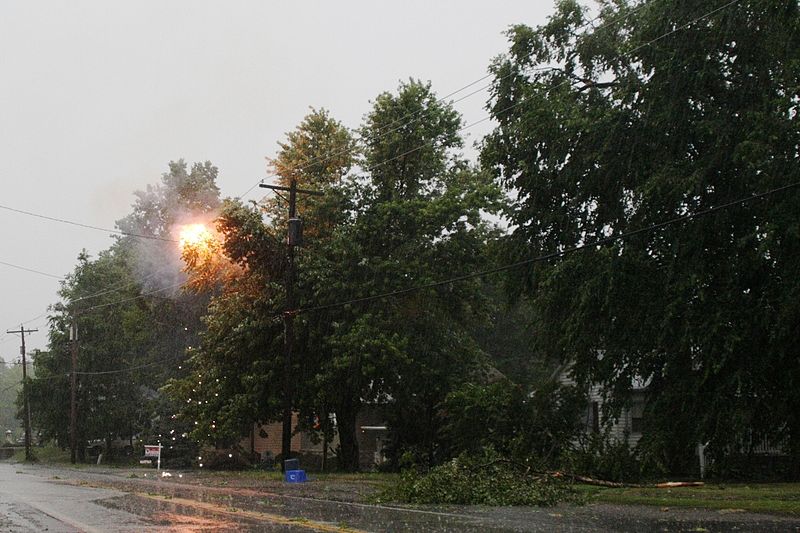It's a tough cleanup job
-- Photo by Robert Lawton
Adapted from Robert Whitcomb's "Digital Diary,'' in GoLocal24.com:
Regarding the rather tropical-style overnight storm we had on Oct. 29-30:
Do the radio talk-show and other complainants about lost electricity realize how difficult it is to clean up after any big storm, especially when summery (up to then) weather has left most leaves on the trees and so especially vulnerable to being blown over or losing big branches?
Unlike in much of the developed world, we in New England don’t usually bury our electric lines underground in heavily wooded areas. Further, in perhaps another sign of America’s crummy infrastructure maintenance, some electric utilities don’t do a very good job cutting back branches that could easily come down on wires even in relatively mild storms.
They should step up inspection and trimming operations, especially in the summer, before tropical storm and snowstorm/ice storm seasons. And state and municipal agencies could do more to monitor locations where trees pose the worst threats to lines, alert the utilities and in some cases do the trimming themselves. But in anti-tax America, how much are citizens willing to pay the added costs that this might entail? This takes more manpower.
Perhaps the storm will boost solar-panel installations. It should. There are several ways in which you can obtain electric autonomy from the likes of National Grid and Eversource by installing a photovoltaic system. The most reliable system is one connected to batteries, which will provide you electricity (for a while) even at night.
Please hit this link for pithy descriptions of your solar options to avoid what happened to so many people in New England as a result of the Oct 29-Oct. 30 tempest:
https://www.livestrong.com/article/149056-do-solar-panels-work-during-a-power-outage/
By the way, I heard a National Grid spokesman (a brutal job after a storm) say on the usual whineathon WPRO radio talk show that the storm was more intense than predicted. No, it wasn’t! The National Weather Service was remarkably accurate about the storm’s timing and intensity.
As for whether the cleanup was slower in Rhode Island than in Massachusetts and Connecticut: Maybe, but I heard the same sort of complaints from talk-show callers in those states about slow repair work there as I did from Rhode Islanders about power restoration in the Ocean State. This storm hit a very wide area. It would be nice to get some solid state-by-state comparisons of repair-work speed. Anyway, when you’re cold, your appliances don’t work and you can’t recharge your cellphone (“I have a cellphone, therefore I am’’) patience fades fast.
